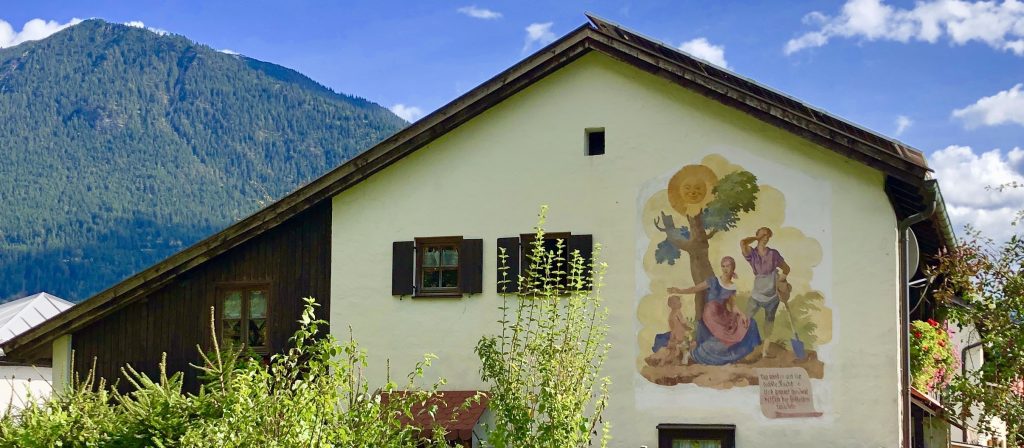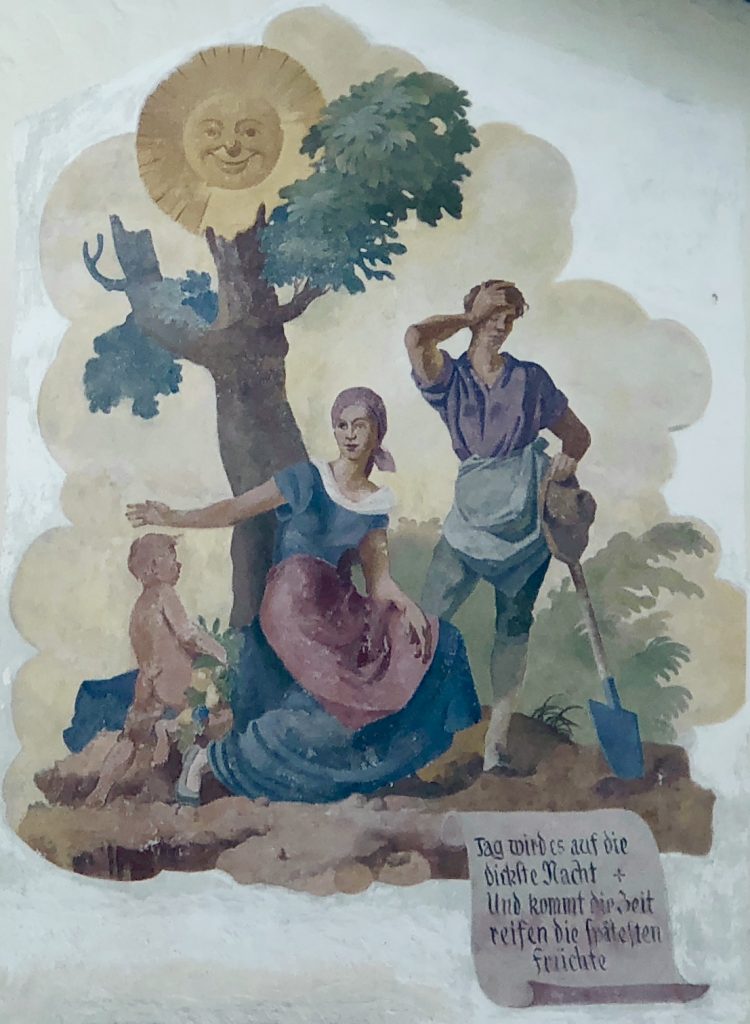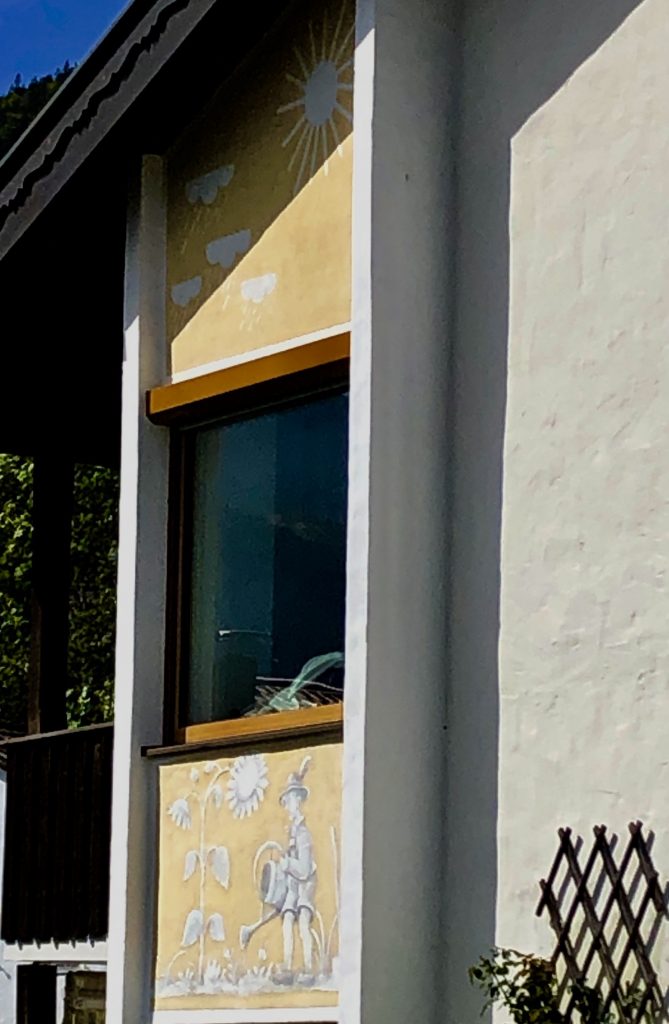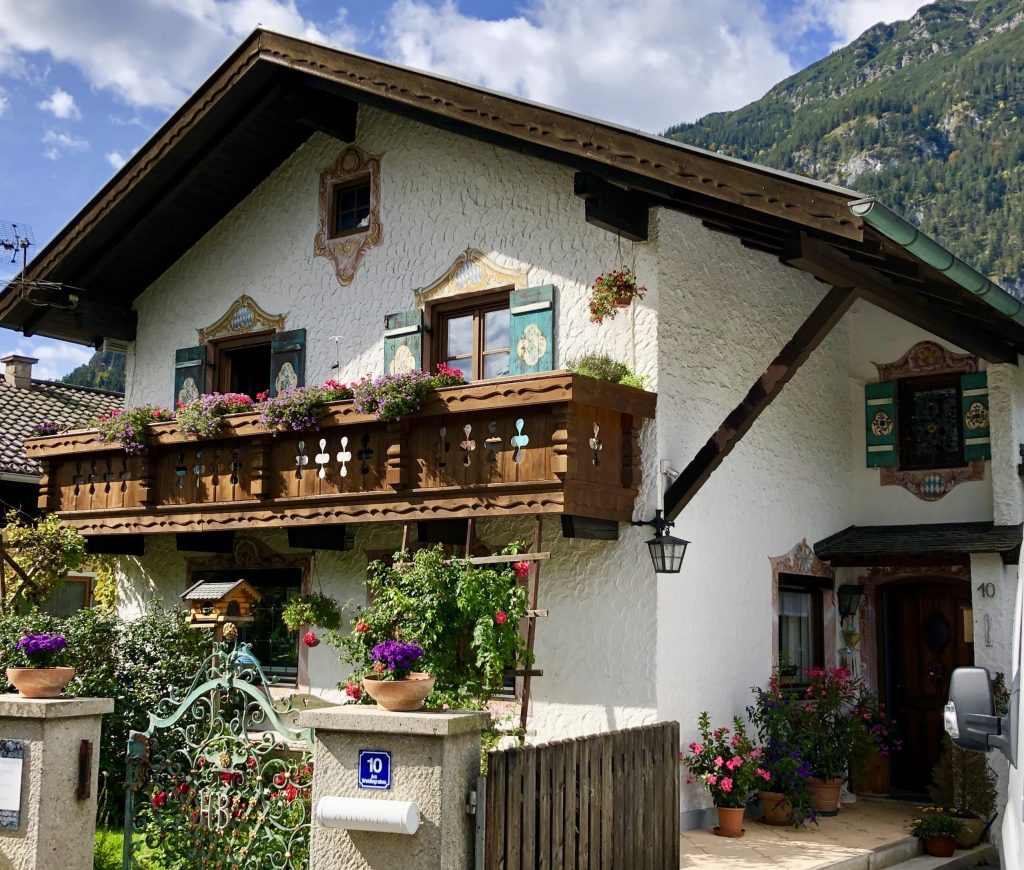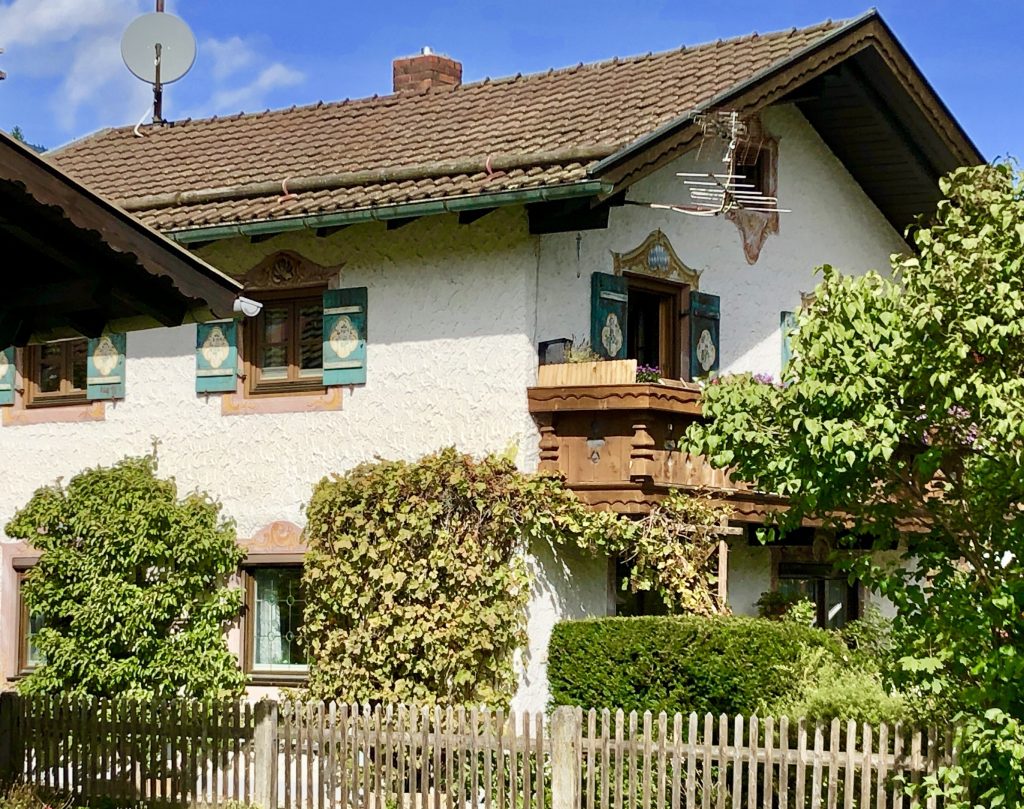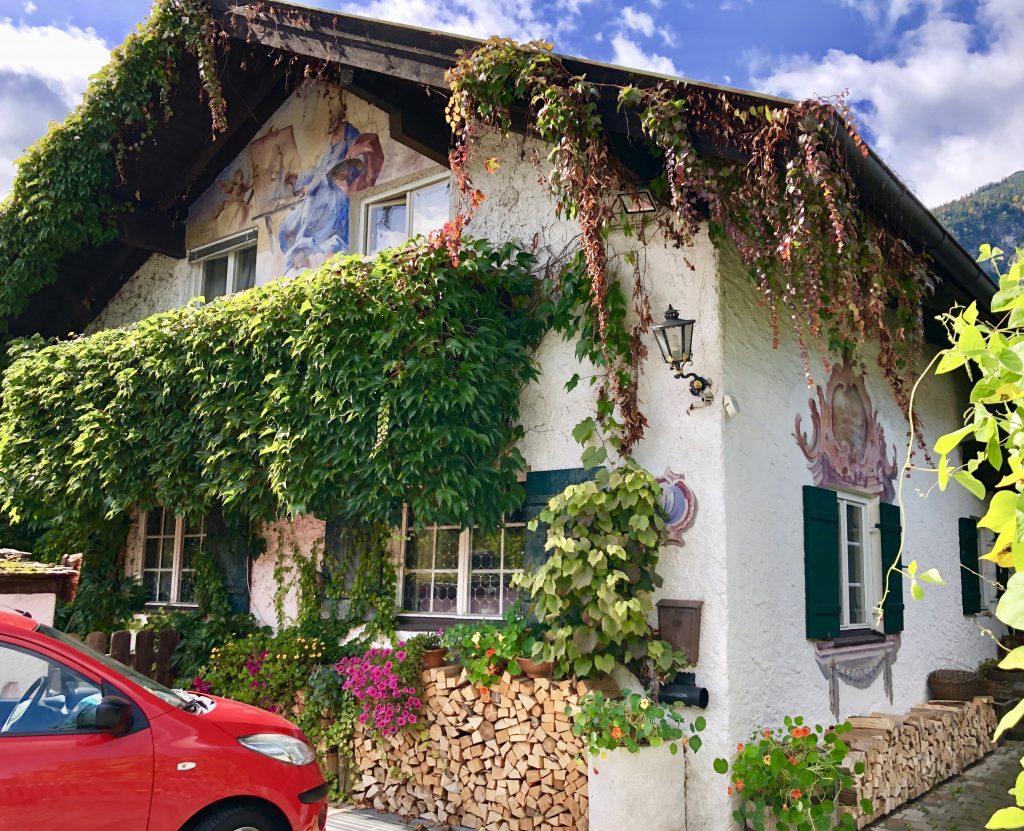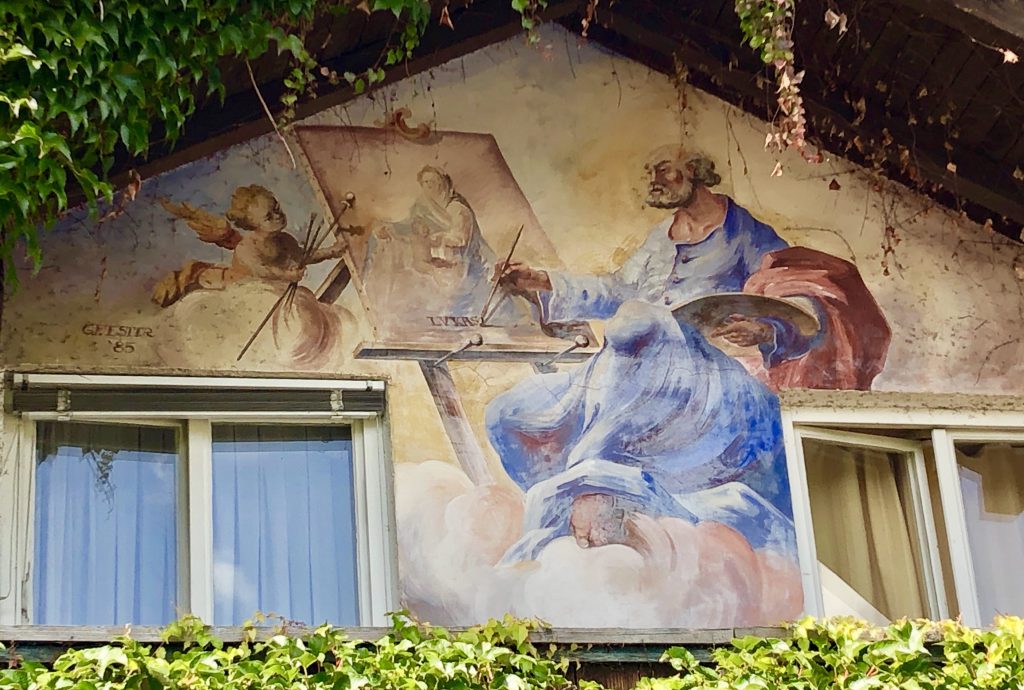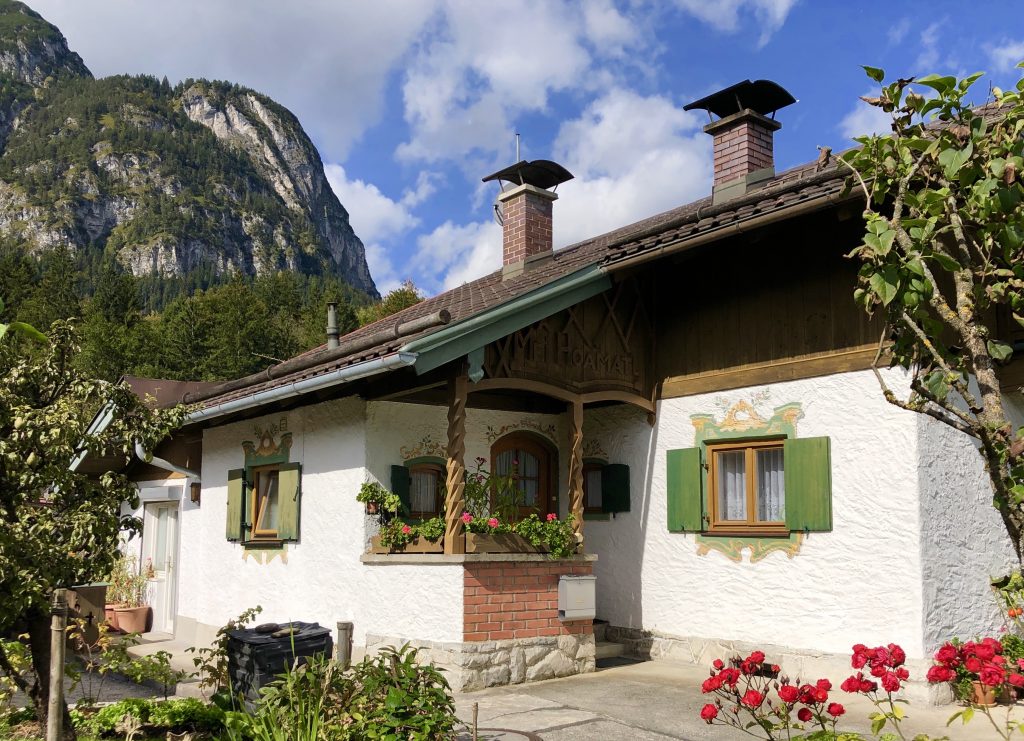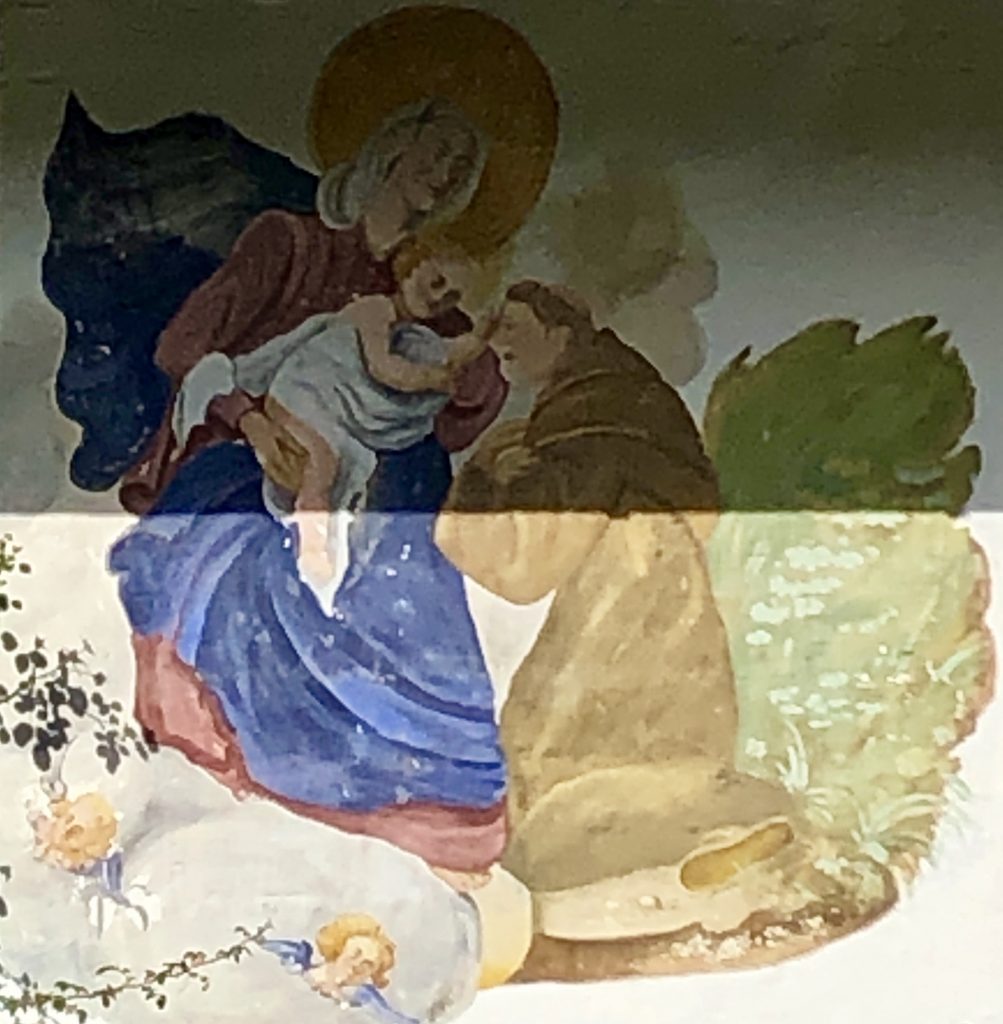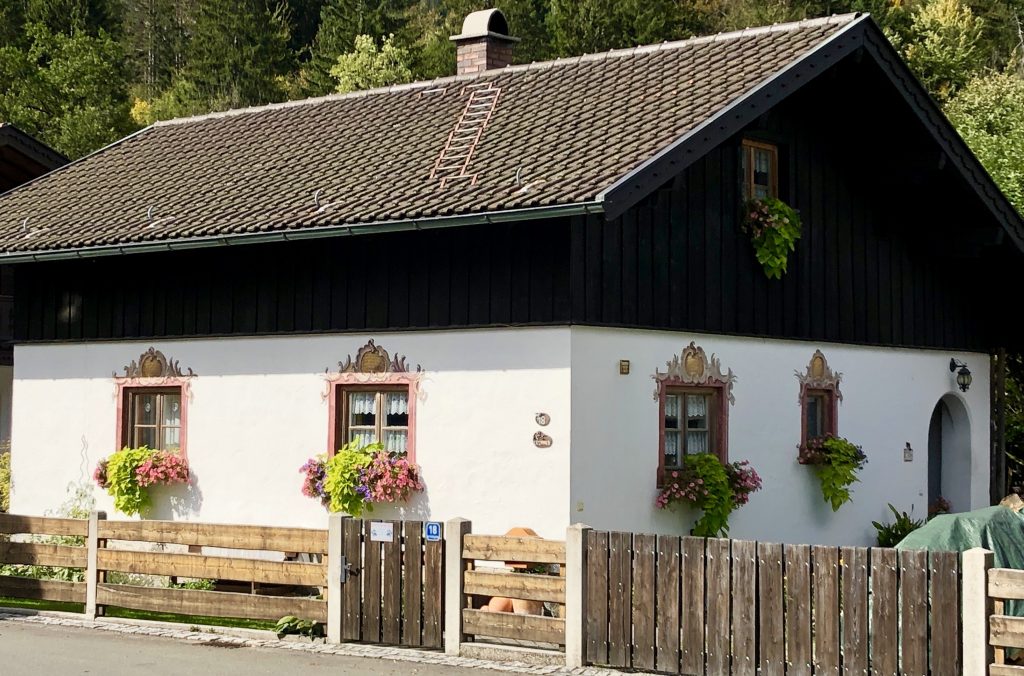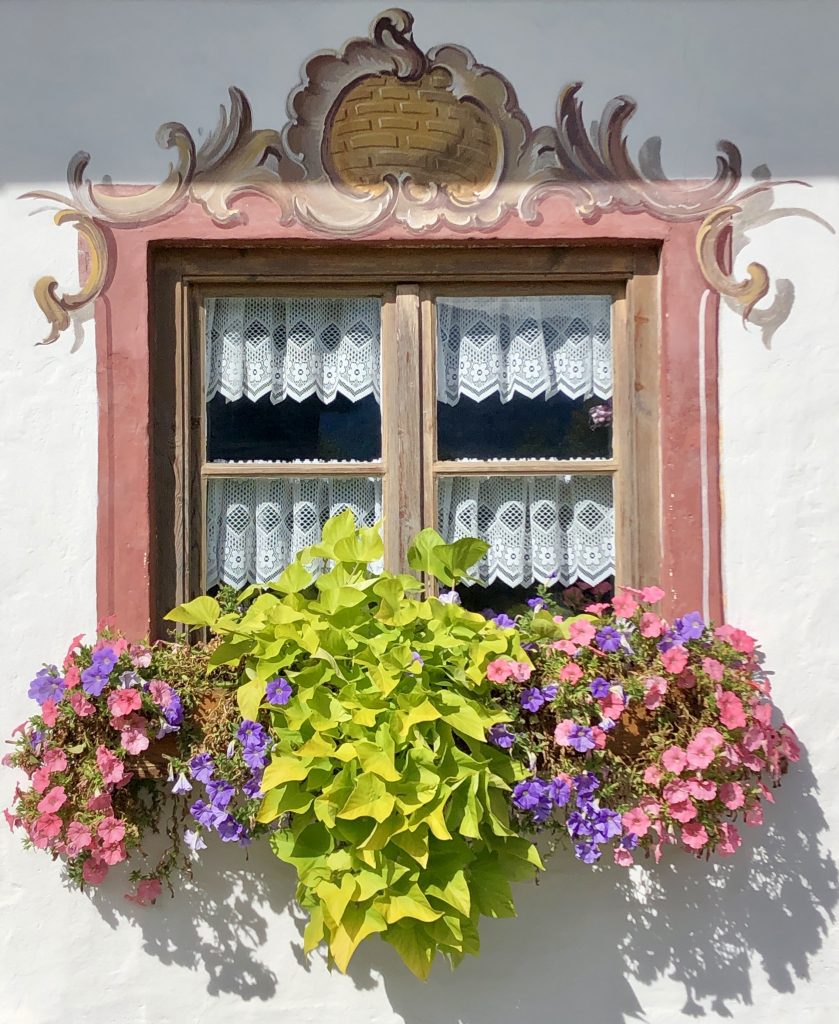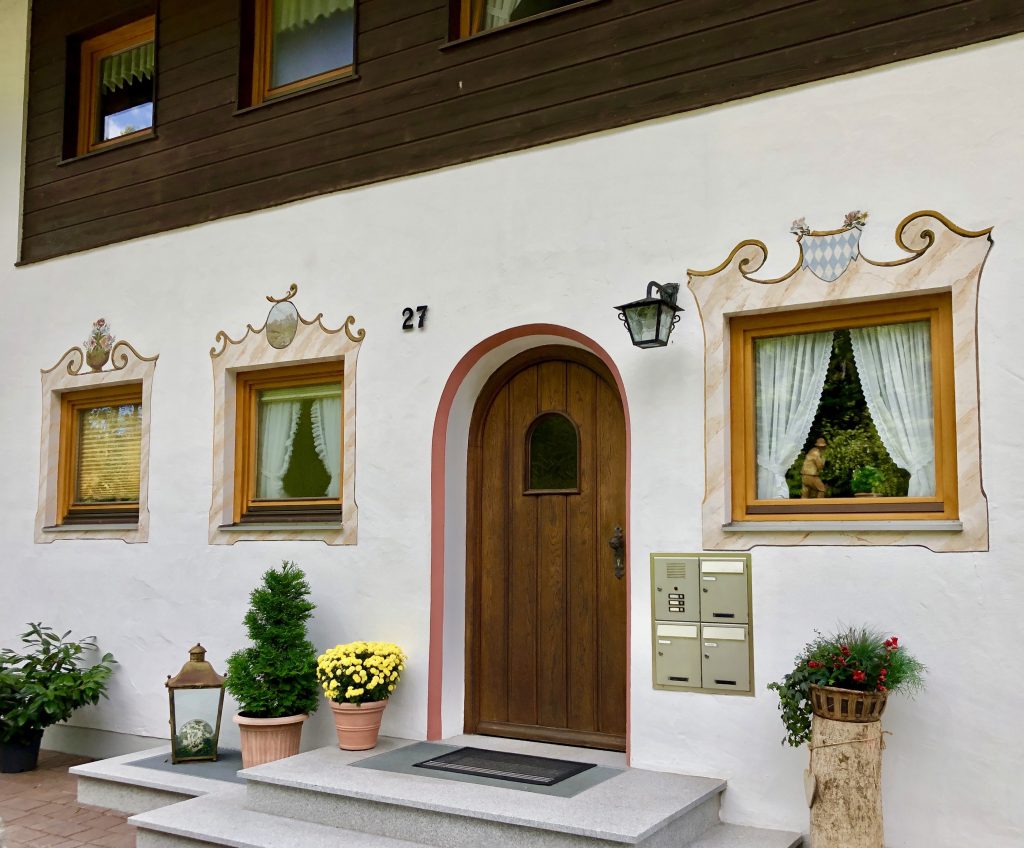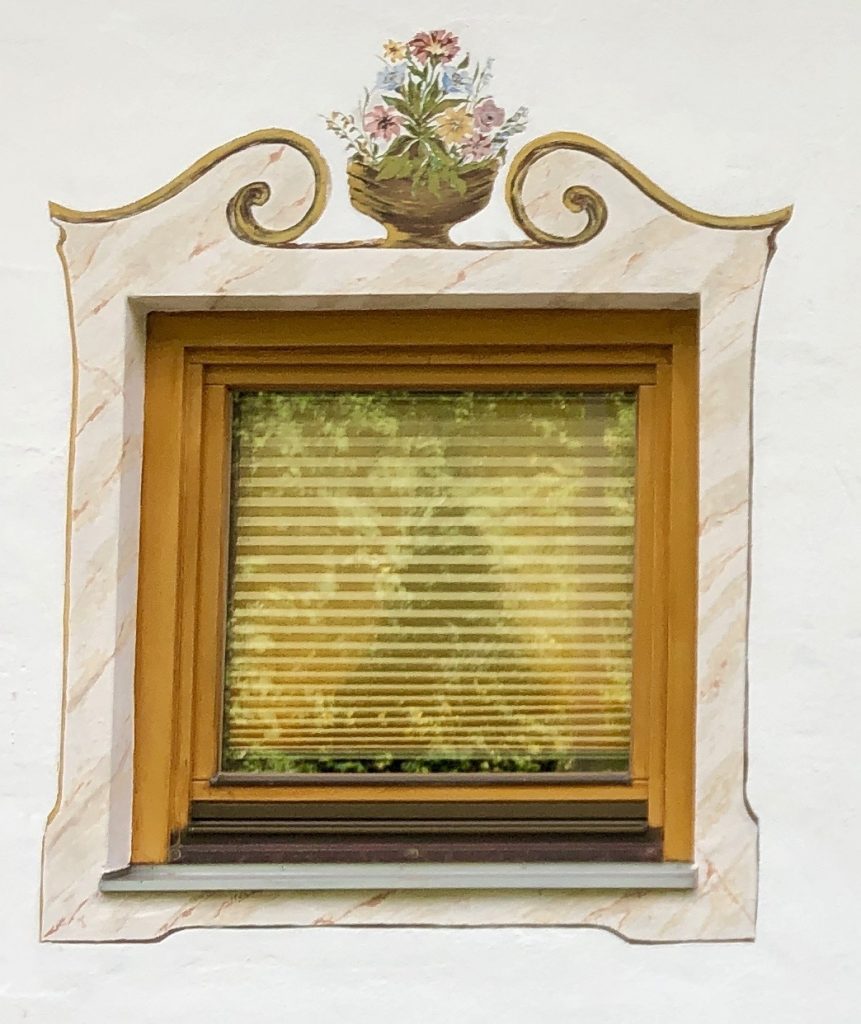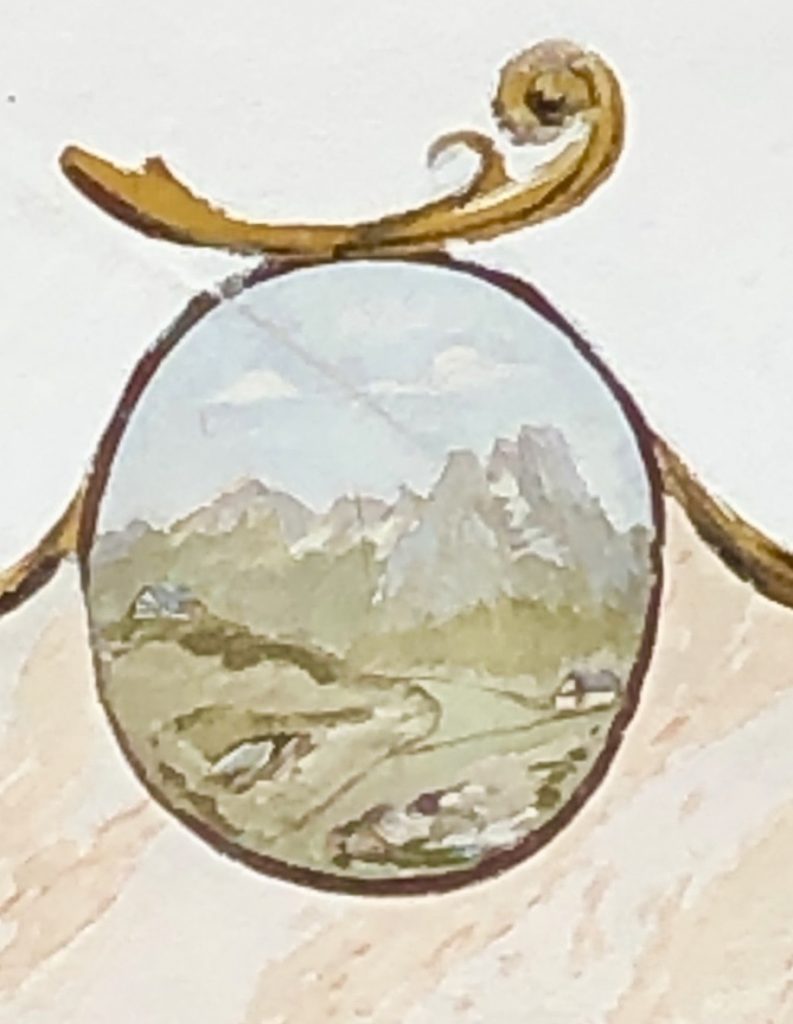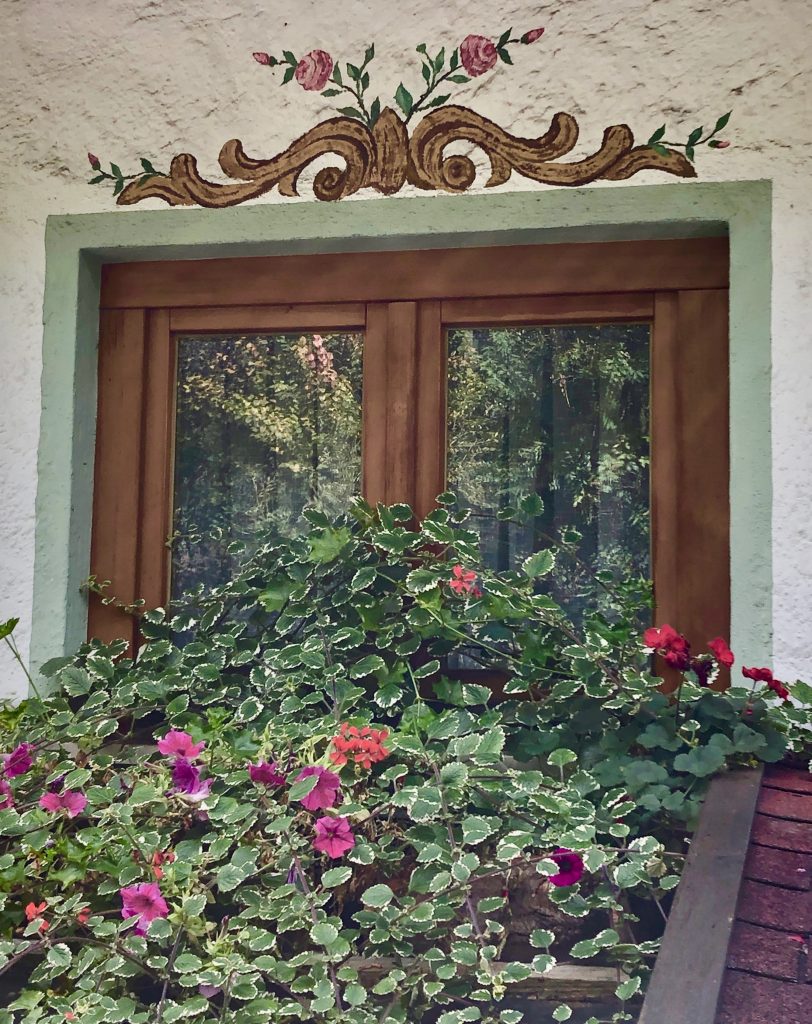- Schiller, Friedrich. Die Jungfrau von Orleans. Projekt Gutenberg, www.projekt-gutenberg.org/schiller/jungfrau/jfo31.html. Accessed 2 Oct 2020.
- Or, as the professionals put it:
“The fury of the storm is hushed to rest: --
The darkest night is followed by the dawn;
The tardiest fruits grow ripe in their own time.”
Translated by John Elliot Drinkwater Bethune. The Maid of Orleans. W. Wilcockson, Whitefriars, London, 1835, p. 109. archive.org/details/maidoforleans00schi. Accessed 2 October 2020.
“But every storm at length suspends its rage,
Day follows on the murkiest night; and still
When comes the hour, the latest fruits mature!”
Translated by Anna Swanwick. Schiller's Maid of Orleans; translated from the German. David McKay, Philadelphia, 1899, p. 86. archive.org/details/schillersmaidor01swangoog. Accessed 2 October 2020.
Lüftlmalerei
A street by street guide to the fresco and facade paintings in the Garmisch-Partenkirchen district
